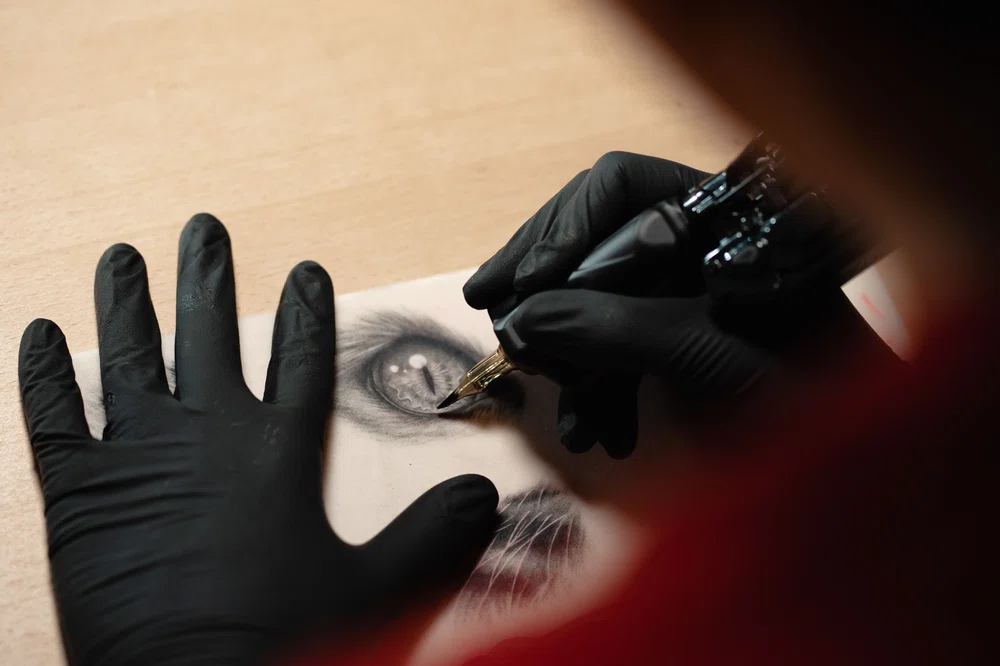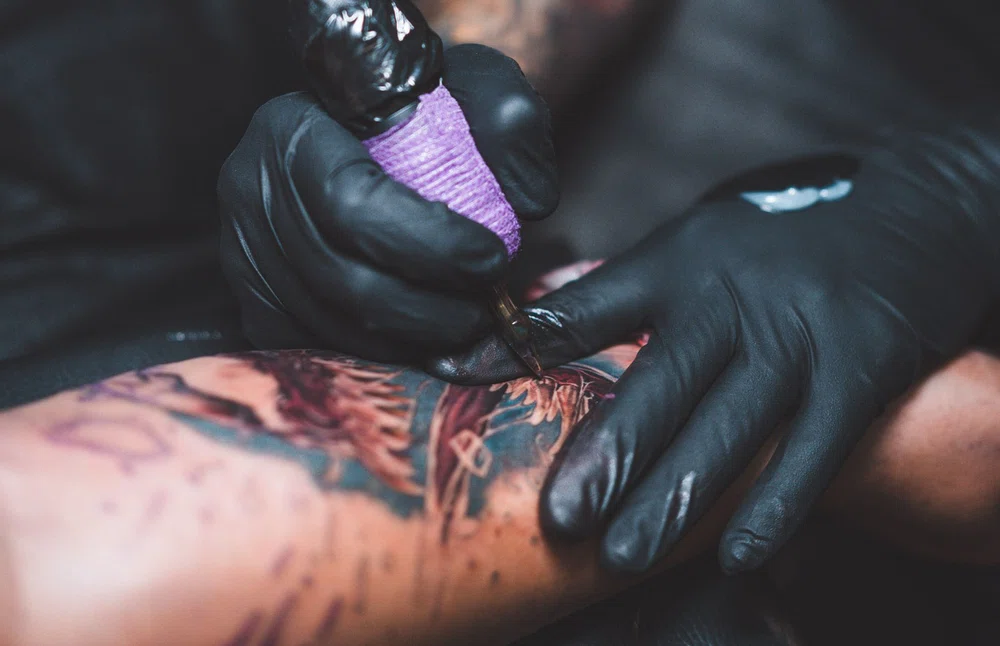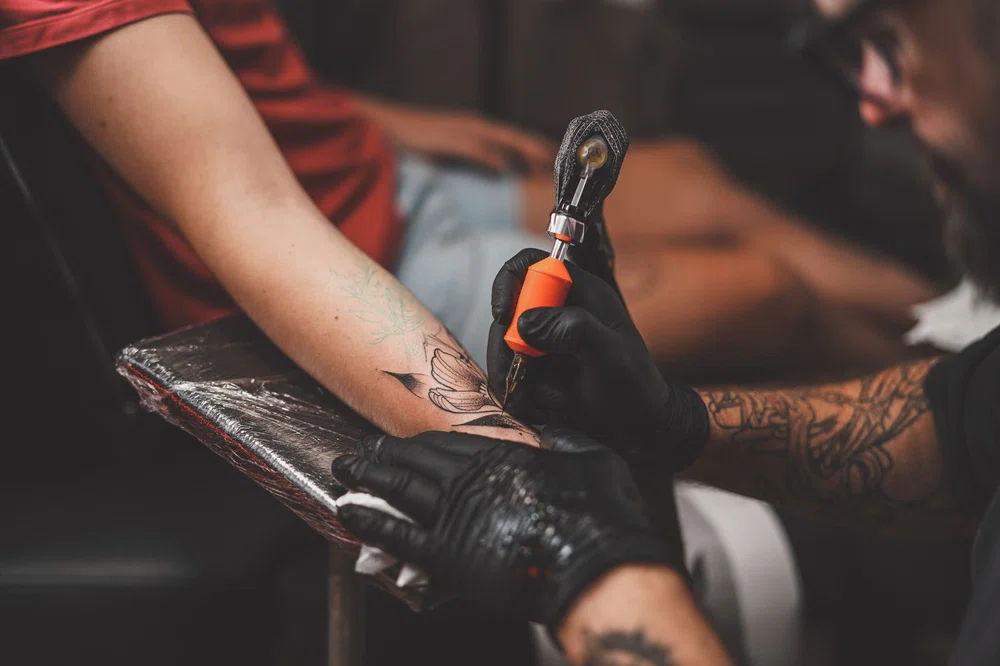The 5 Stages of a Tattoo Artist
Discover everything it takes to become a professional tattoo artist.
23 January 2024
The professional tattoo career can be broken down into five essential stages, each marking a significant milestone in your evolution as an artist.
When you dive into this profession, from the starting point of curiosity and discovery to the culminating moment of becoming a reference, you embark on a journey that demands perseverance, dedication, and, above all, an unwavering passion for this art on skin.
Regardless of which stage you find yourself in, it's worth knowing what awaits you in each.
That's why today we'll explore them in depth, one by one, so you're aware of all the advantages and challenges they bring.
Stage 1: The Awakening of the Tattoo Artist
Typically, an interest in tattooing sparks a curiosity for art in general, leading you to explore many sources of inspiration and knowledge.
From drawing and painting to graphic arts and even photography, various forms of artistic expression can get you interested in the art of tattooing.
And while not every tattoo professional starts from the same point, sooner or later, the visual arts end up influencing somehow the pieces you create.
It's undeniable – tattooing is an art form! In this initial stage, your interest in expressing yourself through tattooing becomes significant.
Advantages of Being in This Stage
- Developing your creativity and artistic sensitivity:
This is when you shape your skills through constant research and experimentation. - Discovering your vocation:
It's also the ideal time to determine if this is genuinely what you want to do for a living. This decision is crucial, considering tattooing is demanding. Still, it can be highly rewarding if you're passionate about it.
Disadvantages of Being in This Stage
- Losing interest due to overwhelm:
Be careful as this initial phase can be confusing and uncertain. The abundance of available information and conflicting opinions on how to practice, with which tools or through what techniques can overcome you and make you want to throw in the towel before you even start.
Here, you'd rather research your options thoroughly before settling on a reference source and take it slow to avoid rushing the foundations of your career.
Tips for Getting into Tattooing
- Explore different forms of artistic expression beyond tattoos; experiment with drawing, painting, sculpture, etc. It will help you develop your creativity.
- Find inspiration in everything around you, be it nature, books, movies, or photos. References are endless! And inspiration can come from the least expected places.
- Don't be afraid to experiment with different styles and techniques. Diving into your professional preferences while trying new things is crucial to finding your distinctive hallmark.
- Dig into everything that catches your interest. Immerse yourself in images, words, and artists to nourish your creativity.
Stage 2: The Journey of the Tattoo Apprentice

Once tattooing has captured all your attention, the learning and practice phase begins.
This is the perfect moment to invest all your energy in educating yourself, soaking up everything you can learn from other experienced artists, and taking your first steps as a tattoo artist.
This is when you start shaping yourself as a professional, gradually acquiring and refining your skills, learning to create your first stencils, and practicing on synthetic skin.…
The secret to advancing in this stage? Patience and constant practice!
Advantages of Being in This Stage
- Becoming familiar with the different tattooing tools:
After deepening your knowledge about the many areas of tattooing through your referents, it's time to experience it in the flesh… Well, not on yours! No self-tattooing yet, please! For the time being, only on synthetic skin. - Honing your skills and identifying your weaknesses:
This is when you realize your strengths and limitations. Nothing beats discovering it by practicing on a material that doesn't complain!
It's the perfect time to try out which techniques and tattoo styles suit you best, depending on what you feel most comfortable with; especially to figure out which direction to take.
Disadvantages of Being in This Stage
- Wanting to tattoo everything right away:
After a few practices on synthetic skin, there's an urge to tattoo the first person you have come across. However, it's not advisable to rush this stage. To excel, you first have to practice as much as you can. - Getting frustrated and discouraged:
Learning to tattoo takes a considerable amount of time, effort, and perseverance. It's exhausting, yes, but in the end, there's a reward. Don't throw in the towel! - Needing an initial investment:
Materials can be a bit costly, but to start, you don't need the best machine on the market or the most popular inks. There are excellent economical options. Time and experience will allow you to upgrade your tools and work materials. Be patient, my friend.
Advice for Aspirant Tattooists
- Continue educating yourself as much as possible. Keep soaking up your role models, attend conventions, exchange knowledge with other artists, or even get a tattoo to see how others do it and grasp the chance to sort out any questions.
Seizing every moment to enrich yourself with information helps you learn about tattoo techniques, materials, and methodology. - Practice tirelessly. Synthetic skin will be your best friend – you can take it wherever you want and make mistakes as many times as necessary. This is your best time to test and hone your skills. Remember that there's no turning back on human skin!
- Lean on a mentor. An experienced artist can help you learn the basic tattooing techniques, understand different methods, and develop your own style.
Stage 3: The Beginner's Leap to Human Skin

The time has come for you to take your first steps on human skin.
You can tattoo friends or family, charging the minimum viable amount or simply covering the cost of materials. Here, nerves become allies, confidence grows with each stroke, and the quality of your work gradually ascends.
Advantages of Being in This Stage
- You start tattooing real clients:
Yes! The long-awaited day has come. However, that doesn't mean you have to stop using synthetic skin. Practice should always be present, even when you have established yourself as a tattoo artist. There are always new techniques or styles to discover and put to the test. - You begin to be part of the tattoo community:
Getting to know and working with other artists is very useful, not only for socializing but also to continue growing.
It's the perfect time to ask questions, share experiences, and give and receive support. Who knows, you might even get a contact to join a studio. - You start developing your own style:
After experimenting for a while, you start to understand what flows best for you and what is better not to force. Each new client and design helps you identify the path to take. This is when you'll slowly start to build your tattoo book or portfolio.
Disadvantages of Being in This Stage
- Pressure and nerves in the first jobs:
Even the best tattoo artists have been through it. Naturally, you want to do everything perfectly right away, but first, you have to break the barrier of the first clients. Once you overcome this stage, everything flows better. - Anxiety to improve as soon as possible:
In this stage, it's normal to be eager to achieve exceptional technique, be original, build a good reputation, have a full agenda, etc. With what you've been through already, it's inevitable to want to surpass yourself.
The solution? Keep practicing.
Tips for Tattoo Apprentices
- Practice a lot, but this time on human skin.
There are always friends and family willing to let you tattoo them. Seizing all the friendly skins you can, is fine, just don't forget there are more clients out there, and the more variety of skins you tattoo, the better. - Start with simple and less elaborate tattoos. Don't go for a complex tattoo until you have enough confidence and skills. And keep in mind that some styles are more challenging for beginners.
- Listen to your clients and adapt to their needs.
Each job and client is different, so it's important to be flexible and willing to adapt your designs. - Don't be afraid to ask for help. If you're not sure about how to do something, don't hesitate to ask colleagues or role models. The best way to learn is in a community, exchanging knowledge, experiences, and perspectives.
Stage 4: The Professional Tattoo Artist
We're getting closer to the summit: tattooing becomes your full-time profession.
In this stage, you solidify your technique, develop a unique style, refine your methodology, and begin gaining recognition in the industry. Here, participating in conventions, doing guest spots, or being a resident in studios you admire while collaborating with other artists is essential to keep growing.
Likewise, here's convenient to have a good promotion and diffusion strategy for your tattoos.
With a strong foundation, it's time to build!
Advantages of Being in This Stage
- Working and living solely from your passion.
- Nurturing yourself by collaborating with other artists or studios.
- Gaining experience and making yourself known in the field.
- Possibility of opening your studio.
Disadvantages of Being in This Stage
- It's a very exhausting stage.
Success can feel overwhelming as it demands time, physical work, and, above all, mental effort. You spend many hours away from home, and sometimes it becomes challenging to separate work from leisure. Here, self-managing well as a tattoo professional is fundamental.
If you organize your time and job well, you shape your system little by little, and everything becomes more bearable.
Advice for Professional Tattoo Artists
- Establish your technique and style. Keep practicing and honing your skills. Never stop doing it, no matter the experience! We can always keep learning.
- Build your personal brand. Developing a unique style that represents you and makes you comfortable is essential to stand out as an artist. Just as important, don't be afraid to turn down tattoo commissions if they are not in line with your career aspirations.
Stage 5: The Art of Being a Tattoo Master
Years of dedication and experience eventually bear fruit.
With everything you carry on your shoulders, there's already room for you to become a respected master in the industry, equipped with enough knowledge to train others who are where you've already been.
This is the right time to share your wisdom, which has sprouted from pure trial and error. You can now guide new talents and contribute to the continuous growth of the art of tattooing.
This stage arrives when your accumulated experience is such that you're already a referent within your style. Your technique and methodology have gone through numerous stages of improvement, polished to the point where you can do almost everything from memory.
Advantages of Being in This Stage
- You are a role model in the tattoo industry.
- You can allow yourself to increase the value of your pieces.
- Your work is recognized, admired, and respected by fellow artists.
- You can inspire others to follow the path of professional tattooing.
Disadvantages of Being in This Stage
- If you've solidified your knowledge and established an exact formula to make a living from this craft without overwhelming yourself or neglecting any of its aspects, then there aren't many cons, to be honest.
You might still be stressed by the number of proposals coming your way, but if you avoid letting ego or ambition decide for you, you shouldn't have a problem.
The key is to be aware of how much you can handle. Remember that you can always delegate and even decline jobs. But above all, never overlook your physical and mental health at the expense of work.
Tips for Tattoo Masters
- Share your knowledge and experience with fellow artists.
Don't forget where you started and become the one who inspired and motivated you when you didn't even know what a Magnum was. - Keep growing as an artist. The art of tattooing is constantly evolving. No matter how much experience you have, you can always keep learning.
- Hold on to your passion for the craft. When you find your purpose in the art of tattooing, it becomes easier to stay motivated throughout your career.

Make Your Own Path As a Professional Tattooist
Each of these stages represents a crucial phase in the career of a professional tattoo artist.
Not everyone experiences it in the same way, and there may be differences, but broadly speaking, this is the scaled journey that those dedicated to this craft usually go through.
It's an extensive pathway that not only involves practicing tirelessly to hone your skills but also learning about patience, dedication, perseverance, and a love for art.
It's not an easy route and requires tons of effort, but it can be very rewarding.
So, if after reading this article, you feel an immense desire to professionalize yourself in the art of tattooing and live entirely off your creations, what are you waiting for? Go learn and practice as much as you can; you already have one of the most important things: the will.
And if you've already made the decision and are looking for experienced mentors with whom you can learn first-hand and in a guided way, check out our intensive courses in professional tattooing.
We teach you it all! From theory to technique, methodology, and even practice, through one of the most comprehensive tattoo education offerings available to date.